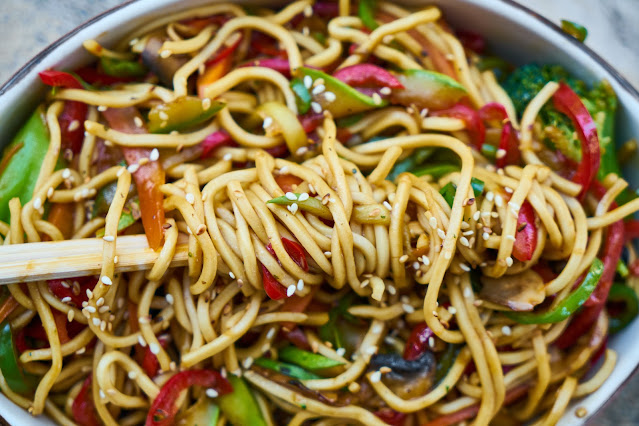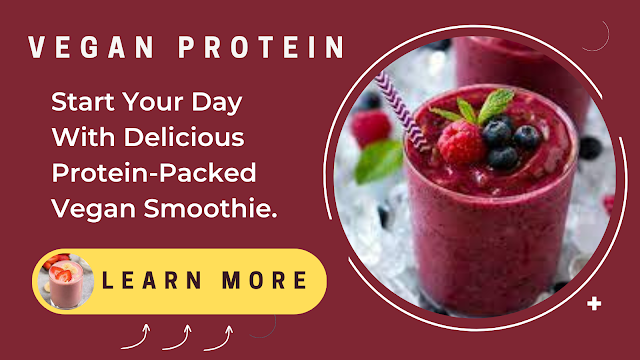As more people adopt a plant-based diet, the question of protein sources becomes increasingly important. Protein is an essential macro-nutrient that plays a crucial role in building and repairing tissues, maintaining a healthy immune system, and supporting muscle growth. Contrary to popular belief, it's entirely possible to meet your protein needs without consuming animal products.
In fact, plant-based diets have been shown to have numerous health benefits, including lower rates of heart disease, diabetes, and certain types of cancer. There are plenty of plant-based protein sources that can provide all the amino acids your body needs to stay strong and energized.
To help you meet your daily protein needs, we've put together this comprehensive guide to the best vegan protein sources. These plant-based foods are not only rich in protein but also contain essential vitamins and minerals that can help you stay strong and energized.
Legumes
Legumes are one of the most versatile and nutritious plant-based protein sources. They include beans, lentils, chickpeas, and peas. Legumes are an excellent source of both protein and fiber, which makes them a great addition to any meal. For example, a cup of cooked lentils contains about 18 grams of protein and 16 grams of fiber. Legumes are also rich in other essential nutrients, such as iron, zinc, and folate. Legumes are easy to incorporate into your diet, and they can be used in a variety of dishes, such as soups, salads, stews, and veggie burgers.
Read also: The Surprising Truth About Vegan Food: The Difference Between Healthy and Unhealthy Choices.
Nuts and Seeds
Nuts and seeds are another great source of plant-based protein. They're also rich in healthy fats, fiber, and other essential nutrients. For example, a quarter cup of almonds contains about 7 grams of protein and 6 grams of fiber. Nuts and seeds are easy to snack on, and they can be used as toppings for salads, oatmeal, and yogurt. Some popular choices include chia seeds, flaxseeds, hemp seeds, sunflower seeds, and pumpkin seeds.Whole Grains
Whole grains are a staple of a healthy diet, and they're also a great source of plant-based protein. They include foods like quinoa, brown rice, oats, and whole wheat bread. For example, a cup of cooked quinoa contains about 8 grams of protein and 5 grams of fiber. Whole grains are also rich in other essential nutrients, such as B vitamins, magnesium, and selenium. They can be used in a variety of dishes, such as salads, stir-fries, and grain bowls.
Soy Products
Soy products are one of the few plant-based protein sources that contain all the essential amino acids your body needs. They include foods like tofu, tempeh, edamame, and soy milk. For example, a half-cup of tofu contains about 10 grams of protein and 1 gram of fiber. Soy products are also rich in other essential nutrients, such as calcium, iron, and vitamin B12. They can be used in a variety of dishes, such as stir-fries, soups, and salads.Seitan
Seitan, also known as wheat meat, is a vegan protein source made from wheat gluten. It has a meat-like texture and is often used in vegan and vegetarian recipes to replace meat. Seitan is also a great source of protein, with about 25 grams of protein per 3.5 ounces. It's also low in fat and rich in other essential nutrients, such as iron and selenium. Seitan can be used in a variety of dishes, such as stews, stir-fries, and sandwiches.Quinoa
Quinoa is a gluten-free grain that's high in protein, fiber, and other nutrients, such as magnesium and iron. One cup of cooked quinoa contains approximately eight grams of protein, making it a great addition to salads, soups, and other dishes.Vegetables
While vegetables may not be the highest source of protein on this list, they still contain significant amounts of protein and other essential nutrients. Some of the best options include broccoli, Brussels sprouts, and spinach. For example, one cup of cooked spinach contains approximately five grams of protein.Protein Powders
Protein powders are an excellent way to supplement your vegan diet with additional protein. There are many different types of vegan protein powders available, including pea protein, brown rice protein, and hemp protein. These powders can be added to smoothies, oatmeal, and other dishes to boost your protein intake.A well-planned vegan diet can provide all the protein and nutrients your body needs to stay strong and energized. By incorporating these plant-based protein sources into your diet, you can meet your daily protein needs while enjoying the health benefits of a vegan lifestyle.







.png)











0 Comments